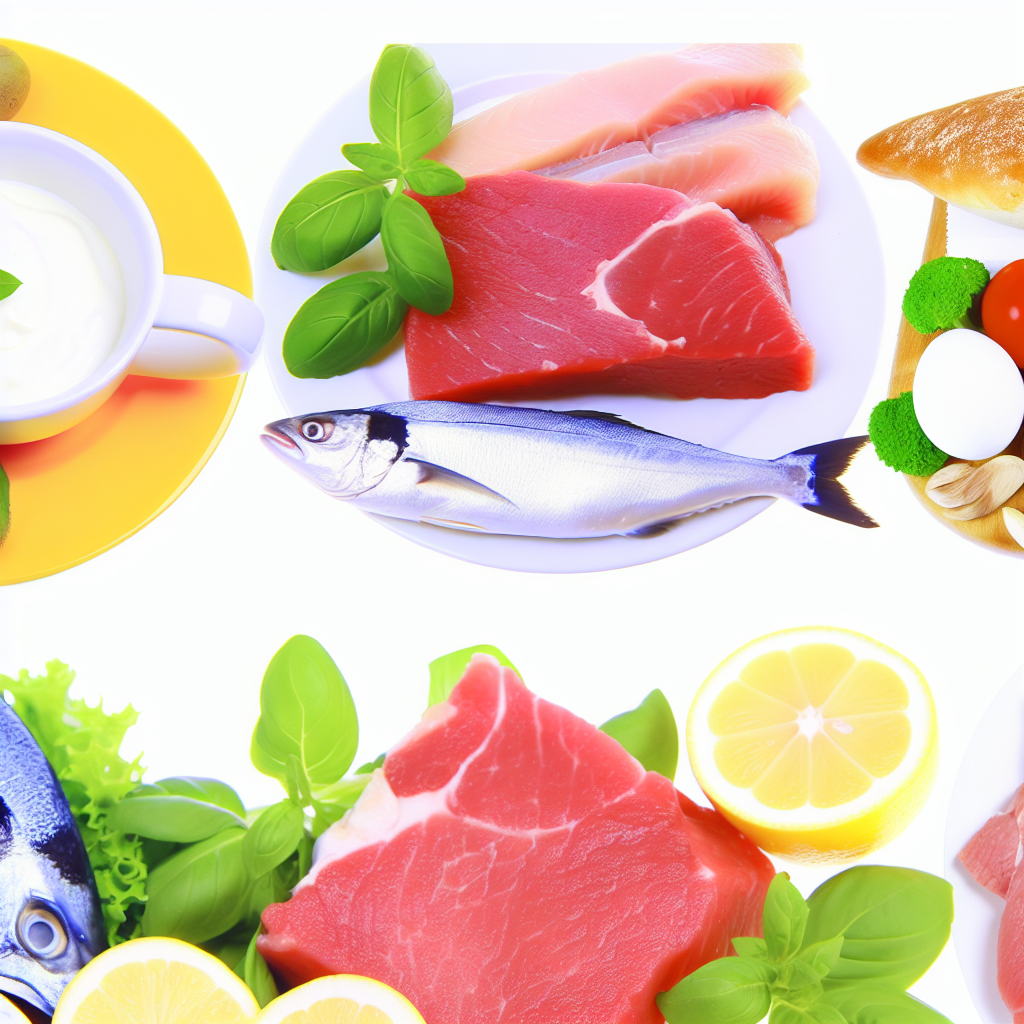Vitamin B12 is one of the most important nutrients for your body, supporting brain function, red blood cell production, and nerve health. Yet, many people don’t get enough of it, and even more are unaware of B12 deficiency until it begins affecting their daily life.
Luckily, sourcing B12 from food is straightforward if you know where to look. From animal-based options to vegan-friendly fortified foods, there are many ways to meet your B12 needs and support your overall health. In this guide, we’ll explore the best dietary sources of vitamin B12, how to recognize deficiency symptoms, and practical tips for adding B12-rich foods to your meals.
What Is Vitamin B12 and Why Is It So Important?
Vitamin B12, also known as cobalamin, is a water-soluble vitamin crucial for several bodily functions. It helps with:
- Energy production by converting food into glucose.
- Proper nerve function and brain health.
- Forming red blood cells to transport oxygen throughout the body.
Unlike most nutrients, B12 is found naturally only in animal-based foods. This makes it difficult for vegetarians and vegans to meet their daily requirements without fortified foods or supplements. For adults, the suggested daily intake is 2.4 micrograms, although pregnant and nursing women may need more.
If you’ve ever felt unusually tired or struggled to focus even with adequate sleep, poor B12 intake might be the missing puzzle piece. Let’s explore where to find vitamin B12 and how to include it in your diet for optimal health.
Animal-Based Foods Rich in Vitamin B12
If you eat animal-based foods, you’re in luck—these are the primary natural sources of B12. Let’s take a closer look at the best options.
1. Beef Liver: Nature’s Most Potent Source
Beef liver is a nutritional powerhouse, offering over 70 micrograms of B12 per 3-ounce serving—more than 3,000% of your daily recommended intake! Although liver isn’t the most popular choice, dishes like liver pâté or sautéed liver with onions can help make it appealing. Chicken liver is a milder option and still rich in B12.
2. Shellfish: Small but Mighty
Shellfish like clams and oysters provide incredible amounts of B12. For example, a serving of cooked clams contains roughly 84 micrograms. They’re also loaded with iron, making them ideal for fighting fatigue. Add clams to pasta or serve them steamed with garlic and butter for a nutrient-packed treat.
3. Fish: From Salmon to Tuna
Fish like salmon, trout, and tuna are not just heart-healthy but also excellent sources of B12. A 100-gram serving of cooked salmon delivers around 2.8 micrograms of B12. Grill salmon and pair it with roasted vegetables for a satisfying, B12-rich meal. Canned tuna is another convenient option for salads or wraps.
4. Eggs: An Everyday B12 Boost
Eggs are affordable, versatile, and widely available. While they contain less B12 compared to meats and seafood, egg yolks are particularly rich in this nutrient. Start your day with scrambled eggs alongside whole-grain toast for a simple yet effective B12 serving.
5. Dairy Products: Double Duty Nutrition
Dairy products like milk, yogurt, and cheese are reliable sources of B12. Beyond this nutrient, they provide essential calcium and vitamin D. A cup of milk contains approximate 1 microgram of B12, making it easy to incorporate through smoothies or breakfast cereal.
Vitamin B12 Foods for Vegetarians and Vegans
Since B12 doesn’t naturally occur in plant-based foods, vegetarians and vegans need to rely on fortified products or supplements. Here’s how to meet your dietary needs effectively:
1. Fortified Cereals
Many breakfast cereals are fortified with B12, making them an easy option for vegans and vegetarians. Combine cereals with fortified soy or almond milk for an added boost.
2. Nutritional Yeast
Nutritional yeast is a favorite in the vegan community for its cheesy flavor and nutrient profile. When fortified, it’s a great source of B12. Sprinkle it onto pasta, soups, salads, or popcorn for a quick health upgrade.
3. Fortified Plant-Based Milks
Non-dairy alternatives such as almond, soy, or oat milk are frequently fortified with B12. Add them to your coffee, smoothies, or cereal for a seamless way to enhance your intake.
4. B12 Supplements
When dietary options are limited, supplements provide a reliable solution for vegans or anyone struggling with insufficient intake. Talk to your doctor to determine the right dosage for your needs.
Recognizing the Signs of Vitamin B12 Deficiency
A B12 deficiency can develop gradually, making it easy to overlook until symptoms worsen. Common signs include:
- Persistent fatigue or weakness.
- Difficulty focusing or “brain fog.”
- Tingling sensations in the hands and feet.
- Mood changes like depression or irritability.
- Pale skin due to reduced red blood cell production.
If you experience these symptoms, it’s worth evaluating your diet and considering supplementation. Severe cases may require doctor-prescribed injections to correct the deficiency quickly.
Practical Ways to Add B12 to Your Meals
Incorporating foods rich in B12 into your diet doesn’t have to be complicated. Here are some simple and delicious ideas for meals:
Breakfast
- Scrambled eggs with smoked salmon and avocado toast.
- Fortified cereal with almond milk and fresh berries.
Lunch
- A tuna sandwich layered with leafy greens and tomatoes.
- Spinach salad topped with boiled eggs and shredded cheese.
Dinner
- Grilled trout paired with roasted potatoes and asparagus.
- Pasta tossed with clams and a creamy nutritional yeast sauce.
Snacks
- Yogurt with granola and almonds.
- Popcorn sprinkled with fortified nutritional yeast.
Conclusion: Take Control of Your Vitamin B12 Intake
Vitamin B12 is the silent hero of good health, supporting your energy levels, brain function, and mood. Whether you prefer hearty meals with beef liver and salmon or vegan-friendly options like fortified cereal and nutritional yeast, there’s a way for everyone to boost their B12 intake.
Take the first step today. Incorporate B12-rich foods into your meals this week and notice the difference it makes in your overall wellness.
